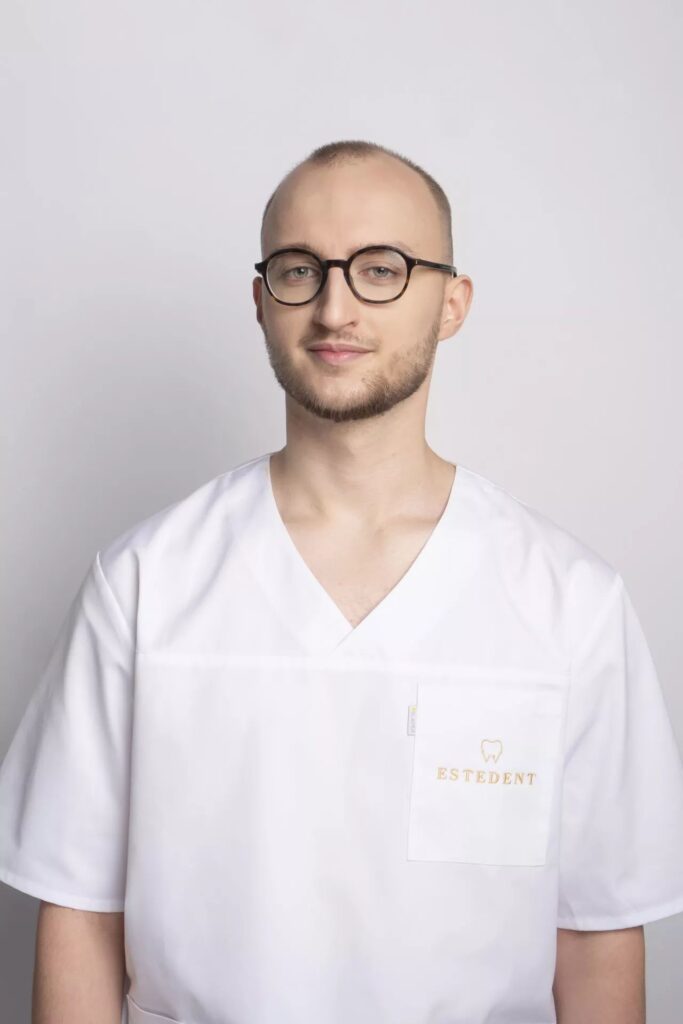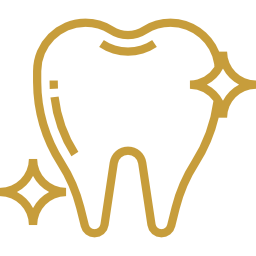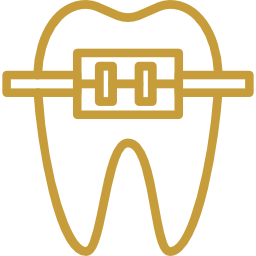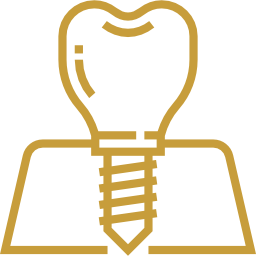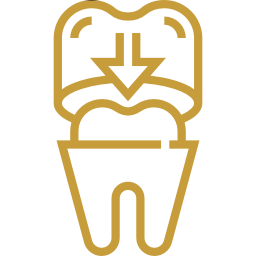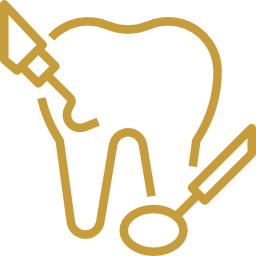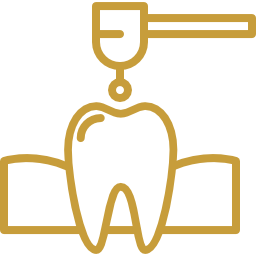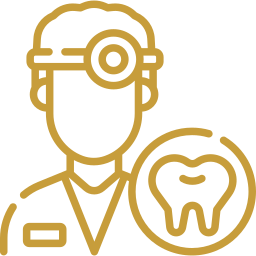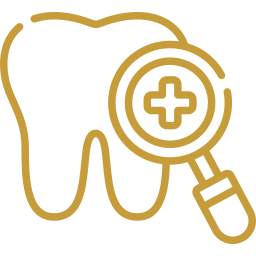Strona główna » Temporomandibular disorders
Treatment of TMD (TEMPOROMANDIBULAR DISORDERS) in Estedent
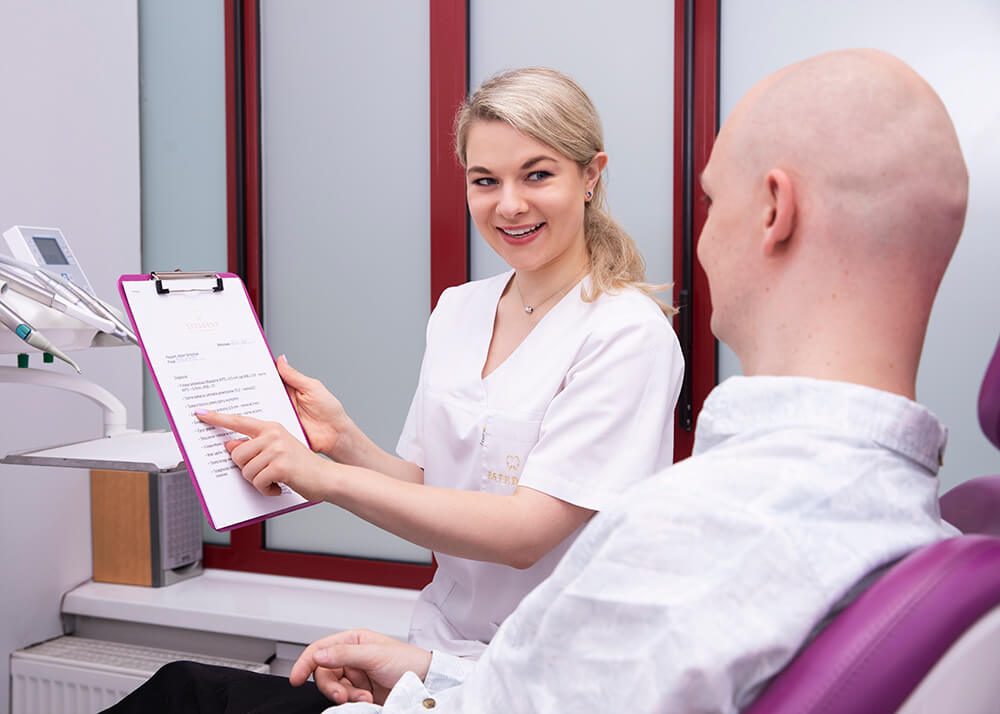
Nowadays, it is more common to observe in patients problems with temporomandibular joints. On of the main cause is stress. Symptoms of those problems are clicking or leaping while closing or opening mouth, asymmetrical movement of a jaw or even pain. Problems with temporomandibular joints (TMJ) result in grounded teeth, muscle cramps or in severe cases resorption – loss of a bone in the joint area.

How can we treat problems with temporomandibular joints?
Early diagnosis is very important to prevent teeth and to start the treatment. Therapy depends on symptoms. In most cases, a dentist works together with a physiotherapist, who specializes in problems with muscles and joints in face area.
After proper joints’ stabilization, most commonly orthodontic treatment is needed to set teeth is proper, comfortable for the patient and safe position, to prevent them from attrition. In some cases, prosthetic treatment is necessary to restore loss dental tissues.
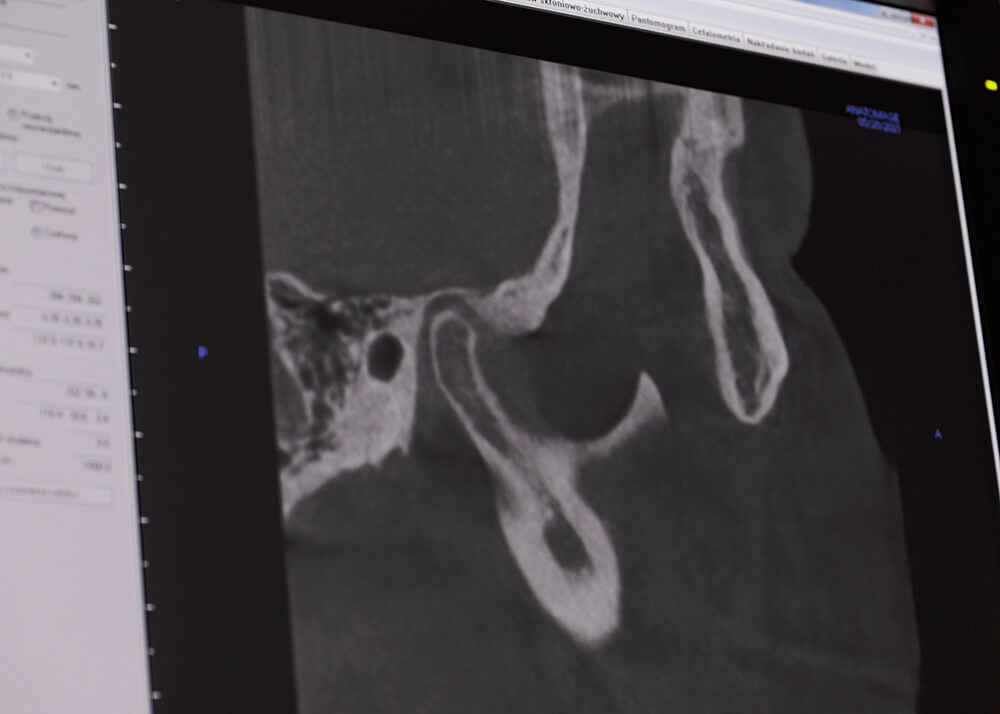
Why you shouldn’t postpone the TMJ therapy?

Neglecting this problem, results in grounded teeth, wobbling, recessions or even their loss. Moreover this cause pain in muscles, joints or lock-jaws. Another serious complication is resorption of a bone in the joint – a condyle.
Temporomandibular joints, masticatory muscles and teeth is a connected system. Therefore when any part of this system suffers, there are consequences in other as well.
New quality of life with healthy temporomandibular joints
Effective treatment of temporomandibular joint problems, provides comfort of chewing, eliminates pain and lowers the risk of narrow jaw opening. Additionally it improves the position of the condyles in the joint fossa, (przecinek w pl wersji) protects teeth from attrition and shifting. Patients, who suffer from muscle overgrowth, resulted from clenching, may improve their appearance after lowering the tension and relaxation of the muscles.
Interdisciplinary therapy
Cooperation of the orthodontist or prosthetic and physiotherapist gives positive results in most cases. Orthodontic treatment can progress faster when there is no blockage from the tight muscles.
Treatment of the temporomandibular problems in Estedent

In our office, we treat problems with temporomandibular joints in cooperation of a physiotherapist, who relaxes the muscles, with a prosthetic, who makes a splint. Physiotherapy involves massages and exercises. Such team work, gives the best results.
DDM Bartłomiej Kołodziej makes splints which stabilizes the occlusion and provides proper position of the condyles in the joints.
In our clinic, physiotherapy and rehabilitation is lead by Natalia Kojder, who achieved master degree in physiotherapy and specializes in maxillofacial problems. She also help our patients with neural problems.

Make an appointment
Call us and make an appointment at Estedent Clinic
in Warsaw or in Raszyn.
How to diagnose the temporomandibular disorders (TMD)?
In most cases a prosthetic or an orthodontist diagnose those problems first. Before restorative or orthodontic treatment, joint stabilization is crucial. That is why, prior to those procedures, we refer the patient with the symptoms of temporomandibular disorders to the physiotherapist and we make a special occlusal splint.
During physiotherapy and splint therapy we aim to relax muscles and stabilize condyles in desired position in the joints. Physiotherapist performs massages and show the patient how to do them and exercises at home. Such treatment is the great foundation before irreversible changes done by the orthodontics and / or prosthetics.
Sometimes, if we diagnose that the main cause of the TMD is stress, we advise our patients relaxing massages etc. However we need to accept that the treatment is conditional.
Meet our specialists in the treatment of joint disorders temporomandibular joint disorder
FAQ about temporomandibular disorders:
Unfortunately yes. Patients with genetic predispositions and exposed to permanent stress, may cope with recurrent problems. It is important to come regularly for controls to react on time with the physiotherapy and / or splint therapy.
No, the treatment is for everyone who needs it. However if we start earlier, there is a greater chance of prevention of the teeth and bones before undesired effects occur. When the disease progresses, there are more destruction in the mouth done already and the whole therapy becomes more complex.
The most common symptoms are headaches, pain in jaws and masticatory muscles, especially after night, when the patient grind and clench teeth. Also worn teeth with an oversensitivity. Sometimes the joints cause pain, sensible around the ears and cheeks.

